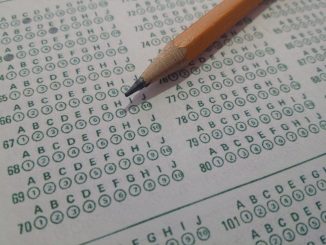
RALEIGH — At its November meeting, members of the State Board of Education were presented with a parental appeals process policy and draft outline of the parents’ guide to student achievement as required under the new Parents’ Bill of Rights legislation.
The appeals policy includes a structure for hearing procedures for parental grievances and concerns filed in a public school district.
A parent has the right to request a hearing by the state board of education if the district has not resolved a parental complaint within 30 days of the parent notifying the principal of their child’s school.
The hearing request to the state board must be made in writing and contain specifics of how their concern is a violation of the district’s procedures and practices. Documentation of the claim being unresolved after 30 days is also required.
A hearing officer who is “a member in good standing of the North Carolina State Bar and has demonstrated experience in education or administrative law within the last five years,” will be assigned by the state board and the district is responsible for paying the costs of officer.
A hearing will proceed within 30 days after the officer has been assigned to oversee the process. Once concluded, the officer will provide the members of the state board with “findings of fact,” all relevant laws, policies, or rules that apply in deciding the case, as well as a recommendation that will address the parent’s grievance.
The state board will vote to either approve, reject, or amend the hearing officer’s recommended decision at its monthly meeting following receipt of the officer’s report.
The Parents’ Guide to Student Achievement updated was presented to the state board by Deputy Superintendent for Standards, Accountability and Research Dr. Michael Maher and Advanced Learning and Gifted Education Director Sneha Shah-Coltrane.
The presentation outline the Guide will have minimum information requirements designated in the law to be pushed out to the district by May 1 each year. The information will include parental rights when it comes to services available to their child, textbooks, materials and curriculum, parental participation and complaint processes, counseling, teacher qualifications, student rights, as well as district and school contact information.
The Guide will also include educational choices, both public and non-public, that are available to parents as well as scholarships grant programs.
Per the policy documentation, the Guide will be provided to parents at the onset of each school year by their local school district.
The state board also received a presentation containing minor revisions to the 2022-23 Read to Achieve Accountability State Level Summary which is scheduled to be received by the General Assembly on Dec. 15, 2023.
Read to Achieve is a law enacted by the General Assembly to, “ensure that every student read at or above grade level by the end of third grade and continue to progress in reading proficiency so that he or she can read, comprehend, integrate, and apply complex texts needed for secondary education and career success.”
Maher and Office of Early Learning Director Amy Rhyne made the presentation to the board which included statistics on reading proficiency achievement gains by first and second graders but focused mainly on third grade reading proficiency levels.
71% of students in first grade and 78% in second grade were deemed proficient during the 2018-19 school year. Those rates cratered during the pandemic, dropping to 38% and 43% respectively. As of the 2022-23 year, the numbers had rebounded close to pre-pandemic levels; 60% for first grade and 69% for second grade.
48.2% of third grade students showed reading proficiency on the Beginning-of-Grade 3 Reading Test, the End-of-Grade Reading Test, or the EOG Reading Retest by scoring a level 3 or higher in 2022-23. Alternatively, 51.8% did not score as proficient on those tests that year.
Read to Achieve summer reading camps for some students seemed to help somewhat.
11,024 of the 36,376 second graders eligible for the camps attended in 2022-23. Only 1,039 of those students were deemed proficient readers by the end of the camp. Similarly, for third grade students, 10,795 attended out of 27,669 who were eligible with 2,147 of the attending students deemed proficient at the conclusion of the camp.



